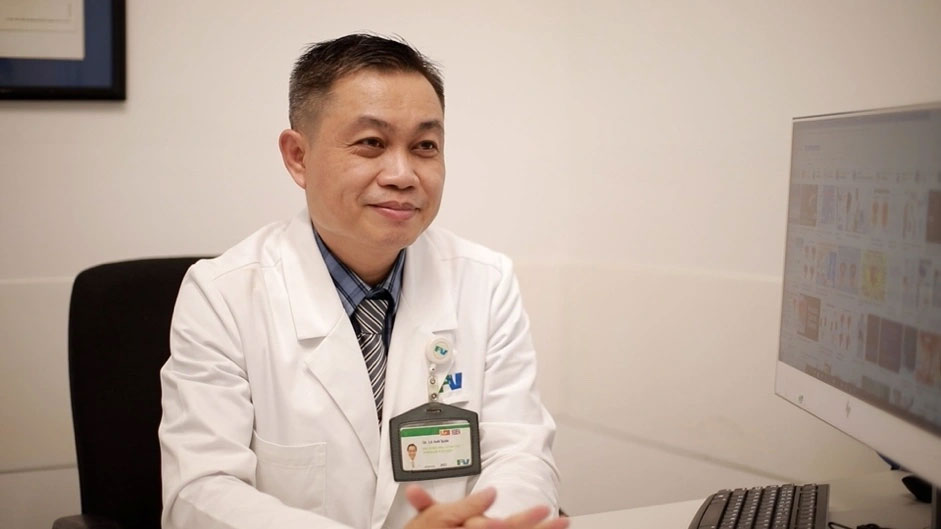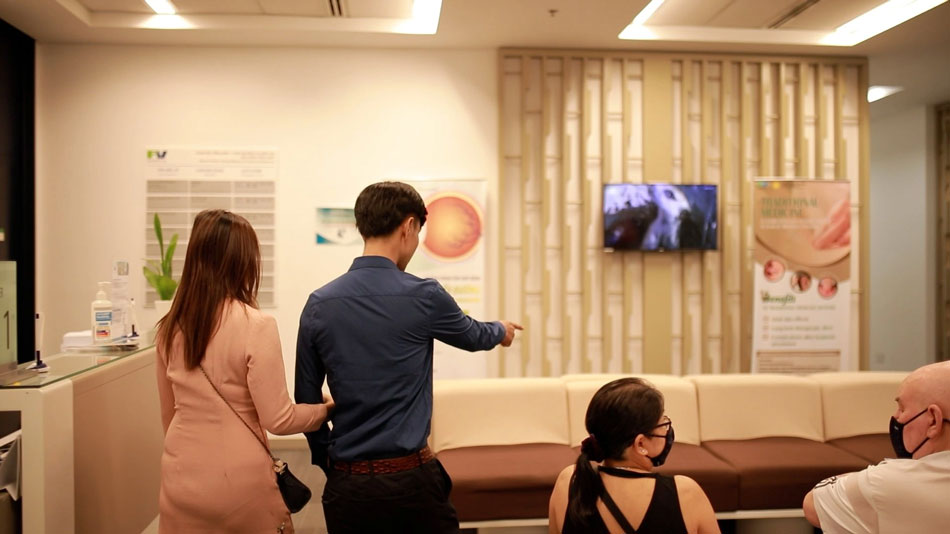Table of contents
Many men who are otherwise healthy have difficulty conceiving a child. Dr Le Anh Tuan, Department of Urology and Andrology of FV Hospital, says that when a couple experiences fertility problems, both partners should undergo fertility screening.
Causes of infertility and subfertility
The pressure of the “egg timer” and other unexpected causes of infertility
Mr M. (36 years old, Belgian) has worked in Vietnam for more than four years. M. is physically and mentally healthy, yet for nearly two years he and his wife have been unable to get pregnant. His wife visited her obstetrician for a thorough check-up and meticulously followed her ovulation timing programme. Every month, Mr M. adhered to the schedule prescribed by the obstetrician, and over time became so stressed that he was unable to become aroused to have sex.
The pressure to have a baby negatively impacted their relationship and Mr M. became psychologically bored with sex. Following the advice of friends, he visited FV Hospital for health screening. At the Department of Urology and Andrology, tests showed that in addition to his mental health issues, he also had varicocele, an enlargement of the veins within the loose bag of skin that holds the testicles (scrotum). These veins transport oxygen-depleted blood from the testicles; when varicocele occurs, blood pools in the veins rather than circulating efficiently out of the scrotum, causing infertility.

Dr Le Anh Tuan says varicocele is among the more common causes of male infertility
Dr Le Anh Tuan, Department of Urology and Andrology, FV Hospital, explains that varicocele is the cause of 40 percent of male infertility cases. Studies of varicocele in the US show that 10 percent of people with varicocele are still able to have children. After surgery, the rate of conception increases to 43 per cent in the first year; over two years, 69 per cent of couple successfully conceive.
Mr M. had surgery to correct the varicocele at FV Hospital to treat his infertility. After the surgery, M. and his wife were advised to have regular sex, make love in a comfortable mood and try not to focus solely on having sex according to the “egg timer” as the subsequent stress might make it harder for Mr M. to get an erection. Instead of worrying about having sex on the day of ovulation, enjoying sex regularly increases a couple’s chance of conceiving.
Six months after the surgery for his varicocele, M. and his wife were happy when doctors at the Obstetrics Department of FV Hospital shared the good news that they were pregnant.
Unexpected causes of infertility in men
According to the recommendations of the World Health Organisation, if a couple has normal, regular intercourse for 12 months without contraception yet still does not fall pregnant, they should consider the possibility of infertility. When couples have trouble having children, in many cultures the finger of blame automatically points to the woman, when fertility issues are just as likely to be on the man’s side. This incorrect perception often means that men do not check their reproductive health, especially when they enjoy regular sex and feel that they are in good health.
Dr Le Anh Tuan said: “The cause of infertility is equally divided for both men and women, each accounting for 30 per cent of infertility issues; the remainder is attributed to both partners having issues, or no causes at all in either partner. Instead of blaming one another, both parties need to visit the fertility clinic for a check-up.”

Dr Le Anh Tuan advises a couple about infertility
Dr Le Anh Tuan says there are many causes of male infertility. For successful fertilisation, a man needs a minimum of 15 million sperm per millilitre, per ejaculate; sperm also need enough mobility and strength to swim during the journey to the fallopian tubes. Excluding cases of erectile dysfunction, even if the husband can have sex normally, infertility can still occur due to causes such as varicocele, poor sperm quality, insufficient sperm count, and blockages in the tubes of the reproductive system (testicular dysfunction). Any barrier in the journey of sperm swimming to meet the egg can cause problems conceiving.
Examination and treatment of male infertility: do not rely on “Doctor Google”
Dr Le Anh Tuan says that the convenience of the internet means that many people self-examine and treat issues with the help of “Doctor Google”. Many men do their own research on the internet before getting a sperm test and self-medicating—a system that doesn’t work and will lead to more confusion.
Google is just a general hub of information, not a doctor that can treat each individual. Dr Tuan advises that men having doubts about their fertility should visit the Urology and Andrology Department of a reputable hospital.
“If a man has been diagnosed with infertility or is worried that he might have trouble conceiving, it’s important that he doesn’t worry too much. Advancements in medical science mean that many cases can be diagnosed and easily treated so that most couples can have children,” adds Dr Tuan.

A patient registers for infertility examination at FV Hospital
To confirm the suspicion of infertility, men should visit a specialist doctor for an examination and be prepared to accurately share their full medical history and detail their lifestyle. The doctor will order a semen analysis tests to check for abnormalities and the presence of antibodies, and perform blood tests to evaluate hormone levels. Men might need a testicular biopsy to check the network of tubes in the testicles for sperm, or ultrasound scans of reproductive organs, such as the prostate.
“Clinical evaluation to examine the testicles is an important step. Sperm abnormalities can affect the quality of the foetus. Causes may also stem from your brain or endocrine system. By looking at all test results, we can figure out where the problems are,” says Dr Tuan.

Around a third of patients at the Department of Urology and Andrology of FV Hospital come for infertility examination and treatment
Every month, around a third of the patients visiting the Urology and Andrology Department of FV Hospital are examined and treated for infertility. The Department offers a comprehensive range of treatment methods, such as drugs, psychotherapy, hormone supplements, surgery, microsurgery, physical therapy and nutrition.
Every patient will be thoroughly examined and receive an individualized plan from experienced doctors and nurses. After receiving tailored specialist care for male infertility at FV Hospital, many families welcome their baby to the world soon after.
For more advice or examination on infertility problems at the Department of Urology and Andrology at FV Hospital, please contact us at (028) 35 11 33 33.



